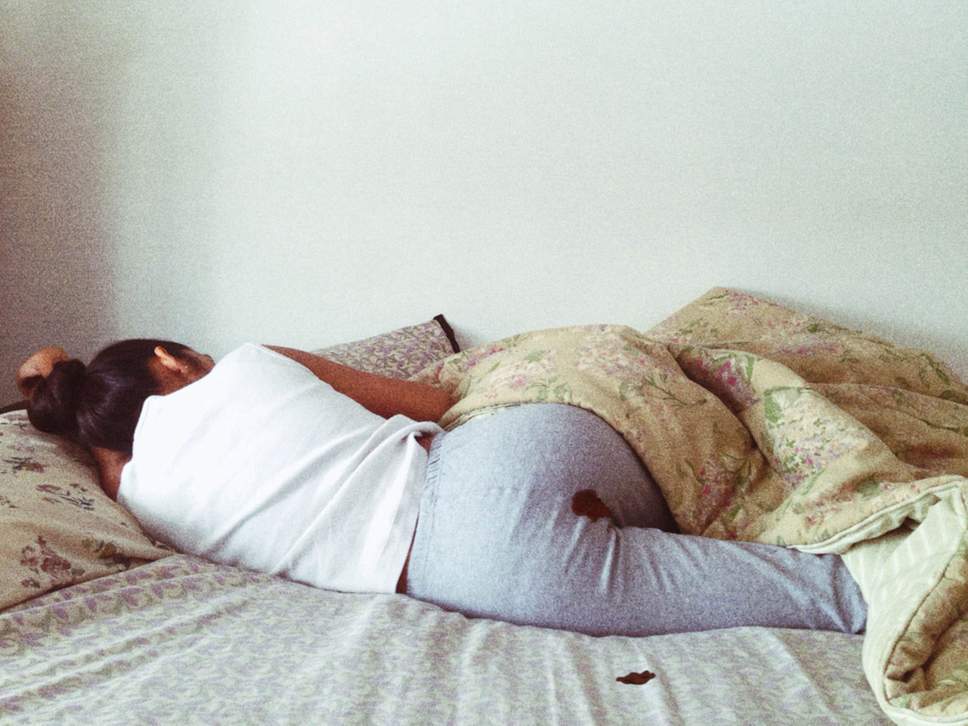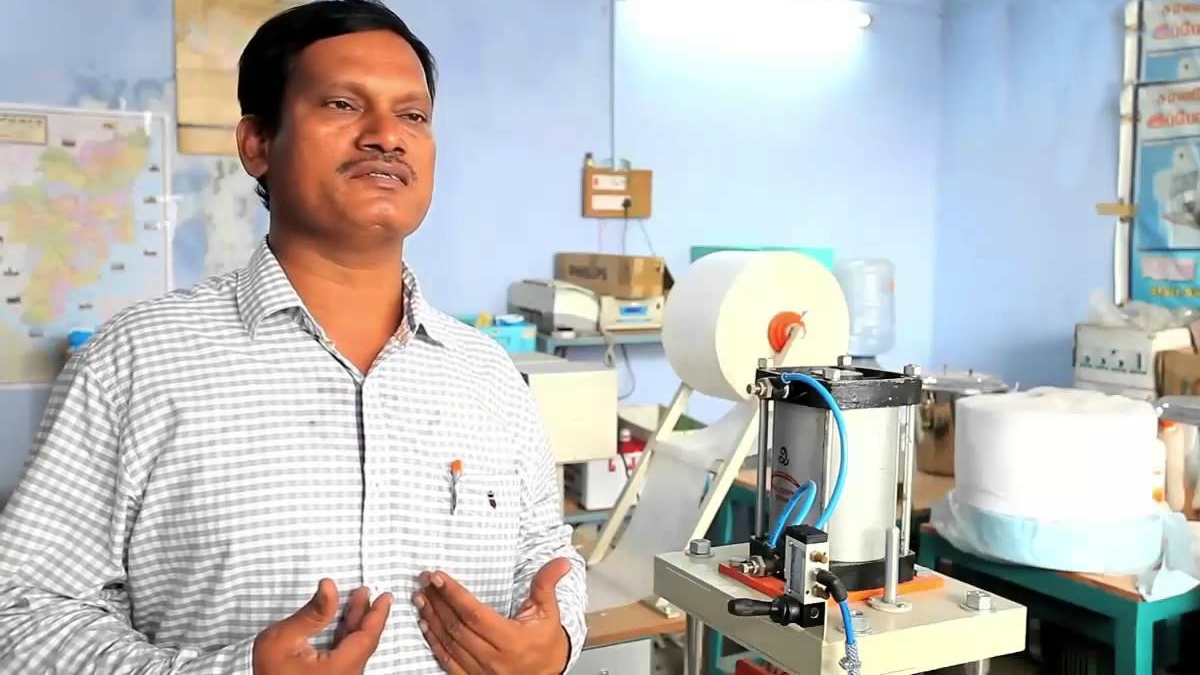

Alice Sharma on the social entrepreneur who risked everything to make women’s hygiene and menstruation a topic of public conversation
He is self-effacing with a charming smile on his face as he stands with ease in front of young school girls who have come to hear him speak in Delhi, as part of the ongoing Swach Shristi Programme at Indira Gandhi National Centre For Arts (IGNCA). 46-year-old, Arunachalam Muruganantham has been dubbed the ‘menstrual man’, the school dropout delivers an honest talk with confidence and just the right amount of humour on his journey of making affordable sanitary pads. He explains his struggles through a presentation titled, Big proof –being small you can do big things because he is indeed proof of an unusual, yet remarkable story.
The audience that comprises of mostly school girls are thoroughly enjoying his lecture. Whenever he mentions the word menstruation, they burst into fits of giggles. Amidst the scattered sniggering and laughter, Murugantham remains undaunted and continues his talk calmly. Most of his life, he has been ridiculed for his struggle to provide better sanitation for women. It even cost him a great deal, losing his family, money and even his place in society. But through it all, he’s kept his sense of humour, so he continues to speak.
A middle aged man, talking of menstruation health.
From poet Rupi Kaur posting an Instagram of her stained bedsheet last year, to Kareena Kapoor urging women to not be ashamed of their menstruation this year, to the various memes on the subject doing the rounds on social media—periods have definitely become mainstream conversation. But for Muruganantham, this has been a personal crusade for almost a decade.

Rupi Kaur
In 1998, Muruganantham, 46, was newly married and his life revolved around his wife, Shanthi and his widowed mother. One day he saw Shanthi hiding something from him and was shocked to discover what it was—rags, which she used during menstruation.
When he asked her why she didn’t use sanitary pads, she pointed out that if she bought them for the women in the family, she wouldn’t be able to buy milk or run the household.
Wanting to impress his young wife, Muruganantham went into town to buy her a sanitary pad. It was handed to him hurriedly, packed in a dark polybag, as if it were contraband. He weighed it in his hand and wondered why 10g (less than 0.5oz) of cotton, which at the time cost 10 paise (£0.001), should sell for 4 rupees (£0.04)—40 times the price.
He decided he could make a cheaper alternative himself.
He made a sanitary pad out of cotton and gave it to his wife, asking for immediate feedback. She said he’d have to wait for some time, only then did he realize that periods were monthly. “I thought they come every week, I could not wait every month,” he says.
He also realised that he needed more volunteers.
Upon research, he discovered that hardly any women in the surrounding villages used sanitary pads, fewer than one in ten. According to a 2011 survey by AC Nielsen, commissioned by the Indian government, it was found that only 12 per cent of women across India use sanitary pads.
He was further shocked to learn that women don’t just use old rags, but other unhygienic substances such as sand, sawdust, leaves and even ash. Approximately 70 per cent of all reproductive diseases in India are caused by poor menstrual hygiene.
Finding volunteers to test his products was not an easy job. His sisters refused, so he had the idea of approaching female students at a local medical college. He managed to convince 20 students to try out his pads, but it still didn’t quite work out. It was then that he decided to test the products on himself. He created a mock “uterus” from an animal bladder by punching a couple of holes in it, and filled it with animal blood.
He walked, cycled and ran with the bladder under his clothes, constantly pumping blood out to test his sanitary pad’s absorption capacity.
Everyone thought he had gone crazy.
“My wife and mother left me. I was abandoned by the society. They thought I am becoming eccentric, consumed by evil spirits. ” But he was a man on a mission. “I believe in creating opportunities out of problems, so I used that alone time to complete the invention.” he says.

Muruganantham at his factory
Looking at Muruganantham, it isn’t apparent that you are meeting someone who endured public disgust for years, or received a presidential award for innovation. Soft spoken and down to earth, he leaves you chuckling as he narrates different anecdotes from his life. He believes that menstruating is good, as it gives women some rest, who otherwise work 365 days a year without any offs.
Passionate about social change, he has founded Jayshree Industries that targets rural areas where women health is suffering. Along the way, he got a Padamshree award and met some iconic social entrepreneurs. The new found fame, brought back his respectability and he now wishes to expand his business in ‘106 developing nations’. His motive is not profit, but only to bring about a revolutionary change in women healthcare across rural areas. “I was actually comfortable with my white shirt, but people don’t take me seriously then. So I have to wear this sophisticated jacket,” he laughs.
When quizzed, whether he would like to be called a feminist, he asks for an explanation because he doesn’t really understand the term. “People often confuse me with philanthropy; I am a social innovator and entrepreneur only. I work for women health care in rural areas that’s all.” he explains.